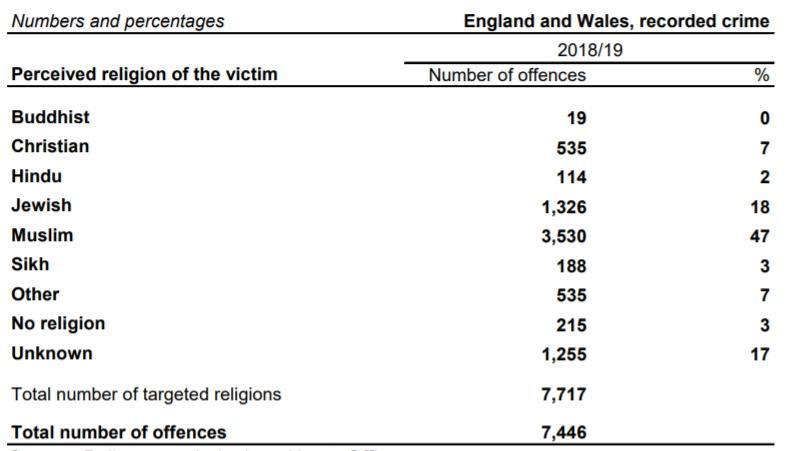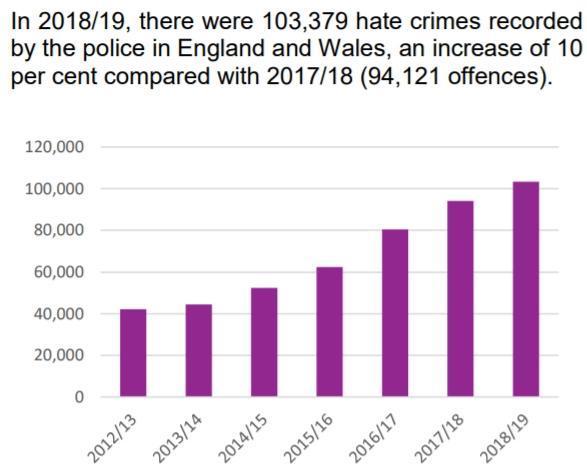The police in England and Wales recorded over 100,000 incidents of hate crime in 2018-19, including many affecting members of the Indian community and those following Islam, Hindu and Sikh faiths, official Home Office figures show.
The United Kingdom Home Office said the increasing numbers of hate crime are mainly driven by improvements in crime recording, but also show a spike after the 2016 EU referendum and terror attacks in Manchester and London in 2017.
The majority of hate crimes were related to race (76 per cent), while those linked to religion show that 47 per cent affected Muslims, 3 per cent Sikhs (188 incidents), 2 per cent Hindus (114 incidents) and 19 incidents affected Buddhists.
Overall, 103,379 hate crimes were recorded in 2018-19, an increase of 10 per cent compared with 2017-18 (94,121 offences).
Some Hindu temples and gurdwaras in various parts of the country have faced attacks in recent months and years, prompting the Home Office to offer funding to install security apparatus at religious institutions.
“In April 2016, the Home Office began collecting information from the police on the perceived religion of victims of religious hate crimes. By perceived, we mean the religion targeted by the offender. While in the majority of offences the perceived and actual religion of the victim will be the same, in some cases this will differ,” an official statement said.
“For example, if anti-Muslim graffiti is sprayed on a religious temple of another faith, this would be recorded as an offence of racially or religiously aggravated criminal damage and flagged by the respective police force as a religious hate crime against Muslims,” it added.
Hate crime is recorded according to five strands: race or ethnicity; religion or beliefs; sexual orientation; disability; and transgender identity. Some incidents may have one or more motivating factor.
There were spikes in religious and race hate crime in May, June and July 2018, the report said.
In May 2018 former English Defence League leader Tommy Robinson was sentenced to his first jail term, sparking a series of protests, while in July US President Donald Trump visited the UK.
There was also a spike in March 2019, the month of the gun attacks at mosques in Christchurch, New Zealand.
The figures showed racially or religiously aggravated offences were more likely to be dealt with by a charge or summons than their non-aggravated counterparts, which the Home Office said reflected "the serious nature" of these offences.




